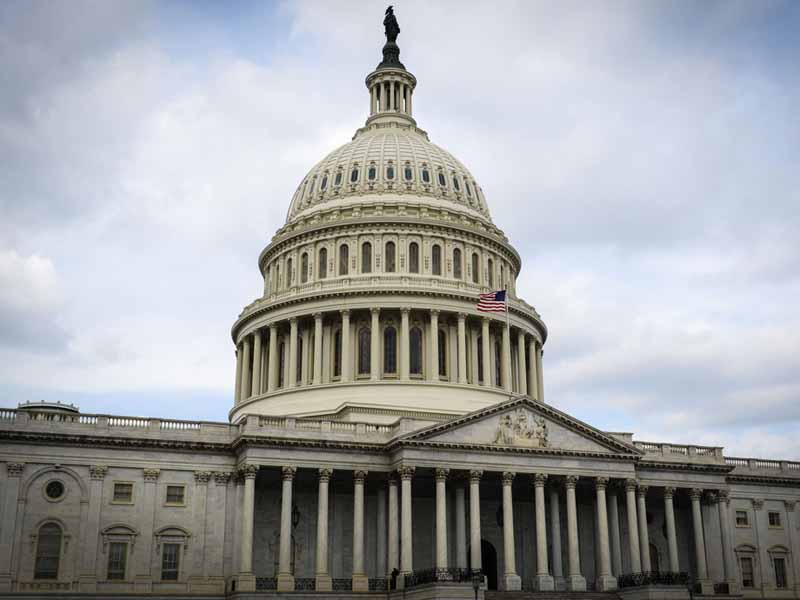AAFP Delivers Pointed Congressional Briefing on COVID-19
Academy Outlines 'Corrosive New Normal' for Family Medicine
May 07, 2020 04:18 pm News Staff – Proof that COVID-19 is ravaging U.S. primary care doesn't get much more hair-raising than the past 10 weeks at Bent Tree Family Physicians.

"I've lost $500,000 in two months," Guy Culpepper, M.D. -- founder of the 32-year-old Frisco, Texas, practice -- said last week. "Every doctor here has been working for free… I haven't gotten one dollar of government assistance. Not one dollar from any agency."
Culpepper was addressing nearly 150 congressional staff members as part of an April 30 online briefing co-organized by the AAFP. The virtual event was titled "The Stakes for Primary Care: Impact of COVID-19 on Primary Care Access and the Urgent Need for Action," and its message was plain: In this involuntary sweepstakes, the risk to family physicians and their patients is total.
"I've got everything in my life tied up in my business: savings, retirement, life," Culpepper said.
The other participants in the briefing -- a recording of which is available online -- made it clear that he's not alone.
Among the slides presented during the data-rich hour was one headlined "The corrosive and debilitating new normal in primary care," a characterization supported by data gathered by the Robert Graham Center for Policy Studies in Family Medicine and Primary Care and survey results from the Primary Care Collaborative.
Participants first heard from U.S. Reps. Joe Courtney, D-Conn., and David Rouzer, R-N.C., founders of the Primary Care Caucus.
"We have to pivot to the next challenge," Courtney said of the public health climate. The caucus, he said, was ready to figure out how to rebuild primary care.
"Primary care is critical to the health of the nation," Rouzer added. "It's more critical now, in the wake of the COVID outbreak."
"The future of employer-sponsored health insurance in this country really depends on a high-value primary care system," said the next speaker, Elizabeth Mitchell, president and CEO of the Pacific Business Group on Health, setting the stage for short remarks from several frontline medical professionals.
STORY HIGHLIGHTS
Pacific was a co-organizer of the briefing and is, with the Academy, on the steering committee of the Consumers First coalition, formed last year to address inequities in health care pricing and resources.
Culpepper's plea followed similarly stirring words from Rebecca Etz, Ph.D., co-director of the Larry A. Green Center in Richmond, Va.; Tabitha Childers, M.S.N., A.P.R.N., of Little Rock, Ark.; and family physician Beverly Jordan, M.D., of Enterprise, Ala.
Their comments put faces and voices to the Primary Care Collaborative's then-most recent survey results presented during the briefing.
The Week 7 results found that just half of clinicians reported being "likely to have enough cash on hand to stay open for the next four weeks."
Many of the hardest-hit practices are in rural areas or serve patients where access to care is sparse, warned Sinsi Hernández-Cancio, J.D., vice president for health justice at the National Partnership for Women & Families.
"Shortage areas in rural communities or communities of color, which already face deep inequities in other areas," she said, experience the greatest need for primary care. (AAFP President Gary LeRoy, M.D., of Dayton, Ohio, acknowledged that grim reality last month when he called on HHS to collect and publish robust patient data.)
Jack Westfall, M.D., M.P.H., who became director of the AAFP's Robert Graham Center earlier this year, sounded more statistical alarms during his portion of the briefing.
Based on lost-revenue projections, he said, more than 60,000 family physicians would soon make personnel cutbacks or stop practicing.
Bent Tree, of course, has already made just such a sacrifice. The practice has furloughed some 70 staff members and now relies on a core of unpaid physicians. Much of their mission now involves answering questions about the pandemic by phone and hoping to keep as many people as possible out of emergency rooms.
"The curve doesn't get flattened in a hospital," Culpepper said. "It's flattened in a family practice office."
He added that he applied for relief from the Small Business Administration's Paycheck Protection Program well before the program ran through its first allocations. (It was replenished in late April.)
As he put it in a LinkedIn post covered last month by the Dallas Morning News, "How did the first to serve become the last in line for a small business loan?" (That media attention and a letter he sent to thousands of patients, explaining the practice's straits, motivated some of those patients to start a GoFundMe campaign to aid Bent Tree.)
"Hospitals need (emergency) funding, and we're glad they're getting it," Mitchell said toward the end of the briefing. "However, we can't assume that it's going toward primary care. We need clarity from Congress that funding will reach primary care."
Shawn Martin, the Academy's senior vice president for advocacy, practice advancement and policy, capped the briefing by laying out the Academy's 15 legislative and regulatory priorities in the fight to restore primary care sustainability. Topping the list: "telehealth coverage and reimbursement policies that maximize patients' access to care while preserving and strengthening the physician-patient relationship." Among the other asks:
- $20 billion of HHS Provider Relief Funds specifically allocated to physicians and physician practices;
- reinstatement and extension of the Medicare Advanced Payment Program through at least the end of 2020;
- nationwide expansion of the Primary Care First model;
- CMS guidance to state health agencies allowing prospective, population-based payment models; and
- HHS requiring providers to certify that they will not engage in mergers or acquisitions of other health care providers within 12 months of receipt of Provider Relief Funds through the Coronavirus Aid, Relief and Economic Security Act, with reasonable hardship accommodations.